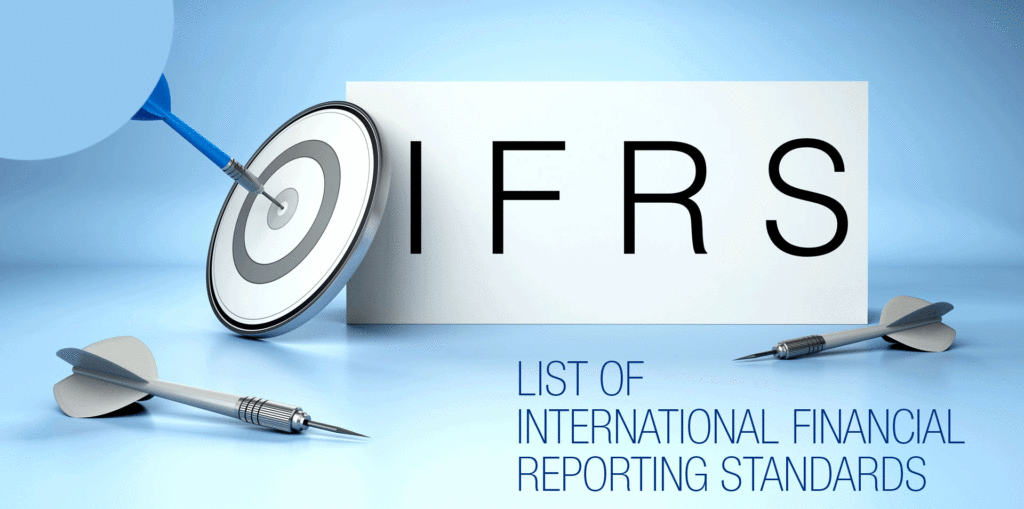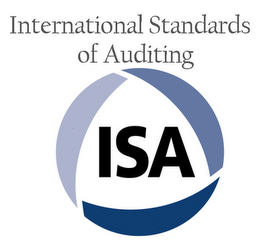ACCA
Diploma
in IFRS
Course Objective
IFRS Training, To provide the accounts and financial professionals thorough knowledge and understanding about the theoretical and practical aspects of International Accounting Standards (IAS), and International Financial Reporting Standards (IFRS).
By completing our IFRS Training, participants will gain a solid understanding of International Financial Reporting Standards, improve their financial reporting accuracy, and ensure compliance with global accounting practices. This course is ideal for finance professionals looking to enhance their expertise and career prospects. For Enrollment and more information please click here…


Learning Outcomes
-
1. Understand and explain the regulatory framework of financial accounting and
reporting in contemporary business environment.2. Use the appropriate financial accounting and reporting standards in the
preparation of financial statements of unincorporated the incorporated
organizations.3. Apply the relevant disclosures requirements to present financial reports and
relevant notes associated with the accounting policies and estimates.4. Able to analyze and interpret the financial information for relevant stakeholders
in accordance with the relevant standards.5. Understand the relevant auditing standards to handle the external audit
independently.
Financial Accounting and Reporting - An Overview
Section One:
1. Financial accounting in contemporary business environment.
2. International accounting standard board (IASB) framework.
3. Financial statements of unincorporated organizations i.e. sole traders, partnerships, non-trading organizations and single entry systems.
4. Financial statements of incorporates organizations i.e. public and private limited companies.


International Accounting Standards (IAS) in Practice
Section Two:
1. Presentation of financial statement. (IAS-1).
2. Inventories (IAS-2).
3. Statement of Cash Flows (IAS-7).
4. Accounting policies, Changes in Accounting Estimates and Errors (IAS-8).
5. Events after the Reporting Period (IAS-10).
6. Income Taxes (IAS-12).
7. Property, Plant and Equipment (IAS-16).
8. Employees Benefits (IAS-19).
9. Accounting for Government Grants and Disclosure of Government Assistance
(IAS-20).
10. The Effect of Changes in Foreign Exchange Rates (IAS-21).
11. Borrowing Costs (IAS-23).
12. Related Party Disclosures (IAS-24).
13. Accounting and Reporting by Retirement Benefit Plans (IAS-26).
14. Separate Financial Statements (IAS-27).
15. Investments in Associates and Joint Ventures (IAS-28).
16. Financial Reporting in Hyperinflationary Economies (IAS-29).
17. Financial Instruments: Presentation. (IAS-32).
18. Earnings Per Share (IAS-33).
19. Interim Financial Reporting (IAS-34).
20. Impairment of Assets (IAS-36).
21. Provisions, Contingent Liabilities and Contingent Assets (IAS-37).
22. Intangible Assets (IAS-38).
23. Investment in Property (IAS-40).
24. Agriculture (IAS-41)
Approved from KHDA – Permit No: 629514
1.The LEGE
International Financial Reporting Standards (IFRS) in Practice
Section Three:
1.First-time Adoption of International Financial Reporting Standards – One (IFRS1).
2. Share-based Payment (IFRS-2).
3. Business Combinations (IFRS-3).
4. Non-current Assets Held for Sale and Discontinued Operations (IFRS-5).
5. Exploration for and Evaluation of Mineral Resources (IFRS-6).
6. Financial Instruments: Disclosures (IFRS-7).
7. Operating Segments (IFRS-8).
8. Financial Instruments (IFRS-9).
9. Consolidated Financial Statements (IFRS-10).
10. Joint Arrangements (IFRS-11).
11. Disclosure of Interest in Other Entities (IFRS-12).
12. Fair Value Measurement (IFRS-13).
13. Regulatory Deferral Accounts (IFRS-14).
14. Revenue from Contracts with Customers (IFRS-15).
15. Leases (IFRS-16).
16. Insurance Contracts (IFRS-17).


Analysis and Interpretation of Financial Statements
Section Four:
1. Comparative and common size analysis.
2. Trend and index analysis.
3. Gross profit and net profit analysis.
4. Breakeven and cost volume and profit analysis.
5. Ratios analysis.
International Standards on Auditing (ISA) in Practice
Section Five:
1. Ethical and legal framework.
2. Overall objectives (ISA-200).
3. Engagement letters (ISA-210)
4. Quality Control (ISA-220)
5. Audit documentation (ISA-230).
6. Fraud (ISA-240).
7. Management letters (ISA-265).
8. Audit planning (ISA-300).
9. Identifying and assessing risks (ISA-315).
10. Materiality (ISA-320).
11. Responses to assessed risks (ISA-330).
12. Evaluation of misstatements (ISA-450).
13. Audit evidence (ISA-500).
14. External confirmations (ISA-505).
15. Analytical procedures (ISA-520).
16. Audit sampling (ISA-530).
17. Related parties (ISA-550).
18. Subsequent events (ISA-560).
19. Going concern (ISA-570).
20. Management representations (ISA-580).
21. Internal Audit (ISA-610).
22. Reliance on experts (ISA-620).
23. Independent audit report (ISA-700).
24. Modified (qualified) audit report (ISA-705).
25. Modified (un-qualifies) audit reports (ISA-706).
26. Comparative information (ISA-710).
27. Other information (ISA-720).


